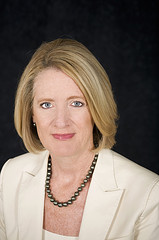General
The vital role of women in creating a green economy will be highlighted at the United Nations Conference on Sustainable Development, to be held in Brazil in June.
At the global meeting, also known as Rio+20, the Women Leaders' Forum will issue a "Call to Action" to gather new ideas, best practices and proposals for the future, in a context where women are a key part of the search for sustainability and eradication of poverty.
Women's contributions are essential for environmental management, food production and social reproduction, as well as the transition to a green economy, Rebecca Tavares, regional director of U.N. Women for Brazil and the Southern Cone region, told IPS.
This is especially true in rural areas, where women take the lead in climate change adaptation and mitigation activities in farming work. But their rights and their contribution to development continue to be negated, she said.
Q: What will happen at the Women Leaders' Forum to be held at Rio+20?
A: The Forum will bring together women, governments, civil society organisations, academics and the private sector to discuss and reaffirm the centrality of gender equality and women's empowerment for the achievement of sustainable development in its three dimensions.
There will be a Call to Action supported by U.N. Women and female heads of state to incorporate new ideas, best practices, innovative proposals and visions for the future.
Q: How can women make a difference at Rio+20?
A: Sustainable development implies a global compact of laws, policies and standards on gender equity, while at the same time responding to new problems, challenges and opportunities.
Action plans must include mechanisms for implementing a green economy, and must recognise the leadership role of women, and their voice and participation, as key factors to ensure sustainable development.
Q: What is your view of women's role in relation to climate change?
A: One-quarter of the world's female population lives in rural areas. These women are leaders, decision-makers, workers, businesswomen and service providers. That is why their contribution is vital for the welfare of their families and communities, as well as for the local and national economies.
Gender equality and the empowerment of women are crucial for achieving the three pillars of sustainable development: economic, social and environmental. Where women's rights and access to resources are ensured, women are powerful agents of change in this direction.
Women play a pre-eminent role in environmental management, food production and social reproduction.
Many also have traditional knowledge that contributes to conscientious use of resources like soil, water and energy. Therefore it is essential to develop training programmes for women in sustainable development techniques, to perfect their knowledge.
Q: How can women contribute to the eradication of poverty and hunger?
A: Women's leadership should help the transition towards growth in a green economy. However, the rights of women who are small farmers, for instance, and their contributions and priorities are still looked down on.
Women can be agents of change through access to the labour market and educational opportunities.
Q: What actions is U.N. Women carrying out in Brazil?
A: We have assistance and empowerment programmes for indigenous women, black women living in "quilombos" (communities originally established by escaped slaves) and women working in the extractive industries.
A programme has been developed by the Brazilian government in partnership with U.N. Women, to promote South-South technical cooperation with African, Latin American and Caribbean countries, with the support of the United Nations Food and Agriculture Organisation (FAO).
The goal of the plan is to consolidate best practices and experiences in Brazil, in order to promote gender equality and spread these actions in the social and economic spheres.
Q: What kind of initiatives is U.N. Women involved in to help empower Brazilian women?
A: Since 2008, U.N. Women has supported work with rural women who are small farmers.
One of these programmes, "Chapéu de Palha" (Straw Hat), has been carried out in the northeastern state of Pernambuco, in conjunction with the state's Secretariat for Women's Policies. The aim is to improve nutrition and the general quality of life in the communities, and to carry out educational and reforestation activities.
Over 28,000 Pernambucan women have benefited since the inception of this plan nearly four years ago, and the programme has received 50,000 dollars from U.N. Women in 2011-2012.
Moreover, in 2010 the Pernambuco state Plan for Public Policies for Rural Women was created, the first of its kind in Brazil. (END)

